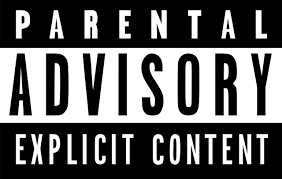explicit
英 [ɪk'splɪsɪt; ek-]
美 [ɪk'splɪsɪt]
CET4 IELTS GRE 考 研 TOEFL CET6
1. ex- "out" + plicat- => explicat- => 变体:explicit.
2. => unfold, unravel, explain.
- explicit
- explicit: [17] Something that is explicit has literally been ‘unfolded’. Like the earlier borrowing explicate [16], the word comes from the past participle of Latin explicāre, a compound verb formed from the prefix ex- ‘un-’ and plicāre ‘fold’ (source of English ply and related to English fold). At first, in the 16th and 17th centuries, English retained the literal sense of the original, but gradually it dropped out in favour of the metaphorical ‘make clear, distinct, and open’ (already present in Latin).
=> exploit, fold, ply - explicit (adj.)
- 1610s, "open to the understanding, not obscure or ambiguous," from French explicite, from Latin explicitus "unobstructed," variant past participle of explicare "unfold, unravel, explain," from ex- "out" (see ex-) + plicare "to fold" (see ply (v.1)). As a euphemism for "pornographic" it dates from 1971. Related: Explicitness. "Explicitus" was written at the end of medieval books, originally short for explicitus est liber "the book is unrolled."
- 1. Criticism is hinted at, but never made explicit.
- 批评总是含沙射影,但从未明说。
来自柯林斯例句
- 2. He gave me very explicit directions on how to get there.
- 他清楚地向我说明了去那儿的路线。
来自《权威词典》
- 3. It's an explicit statement.
- 这句话说得很明确.
来自《简明英汉词典》
- 4. She was quite explicit about why she left.
- 她对自己离去的原因直言不讳.
来自《简明英汉词典》
- 5. Branagh says that it was his intention to make explicit in the film what was only implicit in the play.
- 布莱纳说他的用意是将剧本中的隐晦含意在电影中清晰明白地表现出来。
来自柯林斯例句
[ explicit 造句 ]
